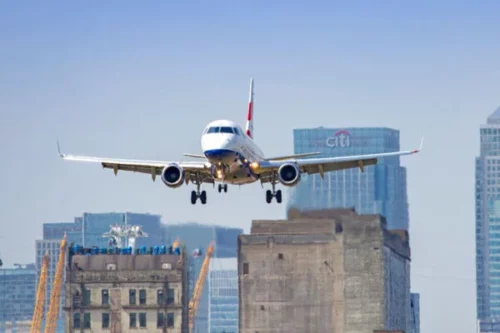EU261: pilot and crew illness NOT ‘extraordinary circumstance’ says Supreme Court
Links on Head for Points may support the site by paying a commission. See here for all partner links.
British Airways has lost a legal battle regarding EU261-equivalent compensation payments after six years of to-ing and fro-ing.
The final judgement, which has been issued by the Supreme Court, sets a new UK precedent when deciding whether compensation is liable in the case of staff illness during flight disruptions.
A quick refresher, for anyone who is unfamiliar with the law:

EU261 is a regulation in EU law that establishes passenger rights and airline obligations during periods of flight disruption, including denied boarding, cancellation and delay.
The regulation was absorbed into UK law following Brexit and remains applicable. It sets fixed payment amounts in instances of delay as well as your rights as a passenger to a refund or rebooking, should things go wrong.
In particular, it outlines the levels of compensation that are payable when a flight is delayed. The full amount depends on the length of your flight and your delay, but payouts are due when a flight of less than 1,500km is delayed by 2+ hours.
Lipton v BA Cityflyer Ltd
In this case, Mr and Mrs Lipton were returning to London from a trip to Milan in January 2018. Unfortunately, their flight was cancelled because their pilot was unexpectedly taken ill and they were rebooked onto another flight which arrived 2 hours and 36 minutes after their originally scheduled arrival.
As Milan to London is less than 1,500km, the Liptons claimed €250 compensation each as mandated by EU261.
BA Cityflyer denied the claim on the basis that the pilot’s illness constituted an “extraordinary circumstance” outside of the airline’s control and not eligible for compensation under EU261, which carves out an exemption for such events.
The Liptons escalated the case, first to Portsmouth County Court and on appeal to Winchester Country Court and the Court of Appeal.
It was then referred to the Supreme Court for a final judgement. Crucially, the Supreme Court judges have now sided with the Liptons, judging that staff illness does NOT constitute an “extraordinary circumstance” and unanimously dismissing the airline’s appeal.
Here is the press summary of the ruling, or you can read the full 93-page judgement itself:
“The Supreme Court unanimously holds that the pilot’s non-attendance due to illness was an inherent part of Cityflyer’s activity as an air carrier and cannot be categorised as extraordinary. That phrase must be given its usual meaning, which denotes something out of the ordinary. Staff illness is commonplace for any business.
Just as the wear and tear of an aircraft’s physical components is considered an inherent part of an air carrier’s activity, so too is managing illness of staff. An event can be external to a carrier but still inherent to its operations.
It is irrelevant whether staff fall ill whilst they are off-duty; their attendance or non-attendance for work is an inherent part of the carrier’s operating system. It is significant that pilots are subject to rules outside their working hours, such as a ban on drinking in the lead-up to a flight.”
Arguably this is a statement of the obvious and should not have required six years of legal cases or indeed a 93-page judgement to confirm ….
What impact will this have?
British Airways said “We are disappointed with this decision and respect the judgment of the Court.”
However, this ruling has implications far beyond British Airways, the Liptons or this specific case.
Going forward, this judgement would suggest that no airline will be able to claim that staff illness is an extraordinary circumstance in order to avoid paying out the compensation as set out in the UK equivalent of EU261.
It should, hopefully, make any claims due to staff illness clearer and reduce the amount of back-and-forth between passengers and airlines.
Remember that EU261 and its UK equivalent only apply to UK/EU-based airlines as well as all airlines when departing the UK/EU.
It does not apply to a non-UK/EU airline arriving in the UK/EU from a non UK/EU country.
This case, however, only applies to claims made from flights arriving into/leaving the UK because those claims are now heard under the new UK equivalent of EU261. A delay flying in/out of mainland Europe would be claimed under EU261 which will not look at UK court precedent.
You can read the full regulation, as copied into UK law, on the GOV.UK website here. It is well worth acquainting yourself with should you ever find yourself with the short end of the stick.


 Rob
Rob 





Comments (137)